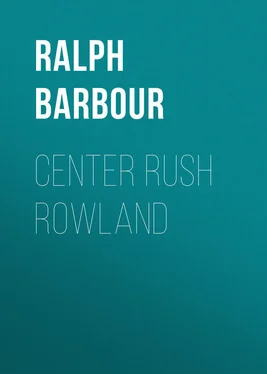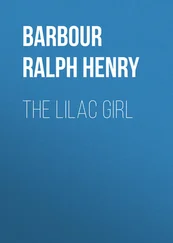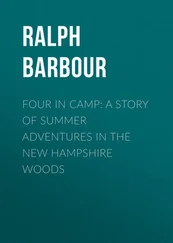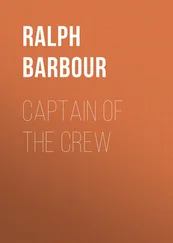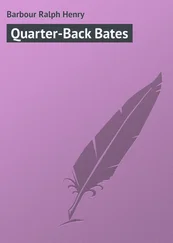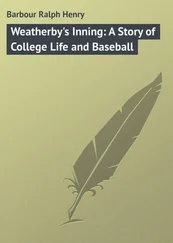Ralph Barbour - Center Rush Rowland
Здесь есть возможность читать онлайн «Ralph Barbour - Center Rush Rowland» — ознакомительный отрывок электронной книги совершенно бесплатно, а после прочтения отрывка купить полную версию. В некоторых случаях можно слушать аудио, скачать через торрент в формате fb2 и присутствует краткое содержание. Жанр: foreign_prose, foreign_children, на английском языке. Описание произведения, (предисловие) а так же отзывы посетителей доступны на портале библиотеки ЛибКат.
- Название:Center Rush Rowland
- Автор:
- Жанр:
- Год:неизвестен
- ISBN:нет данных
- Рейтинг книги:3 / 5. Голосов: 1
-
Избранное:Добавить в избранное
- Отзывы:
-
Ваша оценка:
- 60
- 1
- 2
- 3
- 4
- 5
Center Rush Rowland: краткое содержание, описание и аннотация
Предлагаем к чтению аннотацию, описание, краткое содержание или предисловие (зависит от того, что написал сам автор книги «Center Rush Rowland»). Если вы не нашли необходимую информацию о книге — напишите в комментариях, мы постараемся отыскать её.
Center Rush Rowland — читать онлайн ознакомительный отрывок
Ниже представлен текст книги, разбитый по страницам. Система сохранения места последней прочитанной страницы, позволяет с удобством читать онлайн бесплатно книгу «Center Rush Rowland», без необходимости каждый раз заново искать на чём Вы остановились. Поставьте закладку, и сможете в любой момент перейти на страницу, на которой закончили чтение.
Интервал:
Закладка:
“Land sakes! I should hope you could! You can get an iron bed for four dollars and a half that’s plenty good enough and a mattress for six. You go to Levinstein’s on Adams Street. That’s the cheapest place. Ask for Mr. Levinstein and tell him I sent you. I buy a lot from him. Leastways, I used to. I ain’t bought much lately, what with times so hard and rents what they are and everything a body has to have getting to cost more every day. I mind the time when – ”
But Ira had flown, and Mrs. Magoon’s reminiscences were muttered to herself as she made her way down to the mysterious realms of the basement.
Nead flatly refused to spend any money for bed or mattress, but agreed to go halves on the furniture that Ira had already purchased and on anything it might be necessary to buy later. “You see,” he explained, “it will be your bed, and I won’t get anything out of it. Maybe I might swap mattresses with you if I like yours better, though,” he concluded with a laugh.
“You just try it!” said Ira grimly.
He purchased the bed and mattress before first recitation hour, paying, however, more than Mrs. Magoon had advised. After testing the six-dollar mattresses Ira concluded that there was such a thing as mistaken economy! After leaving Levinstein’s he remembered the letter in his pocket and dropped it into a pillar box and then hustled for school.
He was somewhat awed by the magnificence of Parkinson Hall as he made his way up the steps and entered the rotunda. It still lacked ten minutes of first hour, which was nine o’clock, and the entrance and the big, glass-domed hall were filled with groups of waiting fellows. He found a place out of the way and looked about him interestedly. The rotunda was a chamber of spaciousness and soft, white light. The stone walls held, here and there, Latin inscriptions – Ira tried his hand at one of them and floundered ingloriously – and there were several statues placed at intervals. A wide doorway admitted at each side to the wings, and into one of the corridors he presently ventured. There were three doors to his right and as many to his left, each opened and showing a cheerfully bright and totally empty classroom, and at the end of the corridor was a stairway leading to the floor above. About that time a gong clanged and, with a hurried and surreptitious glance at the schedule card in his pocket, Ira began a search for Room L. A small youth in short trousers came to his assistance and he found it at the end of the opposite wing. He had rather hoped to run across Mart Johnston, but it was not until he had taken a seat in the recitation room that he saw that youth several rows nearer the front. Mart didn’t see him, however, for he was busily engaged in whispering to a good-looking, dark-complexioned fellow beside him whom Ira surmised to be “Brad.” The whispering, which was general, suddenly died away and the occupants of the seats, fully a half-hundred in number, Ira judged, arose to their feet and began to clap loudly. Ira followed suit without knowing the reason for the demonstration until he caught sight of a tall, thin figure in black making its way up the side aisle toward the platform. Then he clapped louder, for the figure was that of Professor Addicks, and Ira already had a soft spot in his heart for the pleasant-voiced man who had spoken so kindly to him the day before.
Professor Addicks bowed and smiled, standing very straight on the platform with one gnarled hand on the top of the desk. “It gives me much pleasure to see you young gentlemen all back here again and all looking so well,” said he. “I trust you have spent a pleasant Summer and that you have returned eager for work – and play. Someone – was it not our own Mark Twain? – said that play is what we like to do, work what we have to do. But he didn’t say that we can’t make play of our work, young gentlemen. I can think of nothing that would please me more than to overhear you say a few years from now: ‘I had a good time at Parkinson. There was football, you know, and baseball and tennis; and then there was Old Addicks’ Greek Class!’”
A roar of laughter greeted that, laughter in which the Professor joined gently.
“Oh, I know what you call me,” he went on smilingly. “But I like to think that the term ‘Old’ is applied with some degree of – may I say affection?”
Clapping then, and cries of “Yes, sir!”
“Age, young gentlemen, has its advantages as well as its disadvantages, and amongst them is the accumulation of experiences, which are things from which we gain knowledge. I am old enough to have had many experiences, and I trust that I have gained some slight degree of knowledge. I make no boast as to that, however. In fact, I find that I am considerably less certain of my wisdom now than I was when I was many years younger. Looking back, I see that the zenith of my erudition was reached shortly after I had attained the age of the oldest of you, that is, at about the age of twenty-one years. Today I am far more humble as to my attainments. But, young gentlemen, there is one thing that I have learned and learned well, and that is this: each of us can make his work what he pleases, a task or a pleasure. Some of you won’t believe that now, but you’ll all learn eventually that it is so. And if you make your work a task you are putting difficulties in your own way, whereas if you make it a pleasure you are automatically increasing your power for work. If it is a pleasure you want to do it, and what we want to do we do with a will. Therefore, young gentlemen, bring sufficient of the element of play to your studies to make them agreeable. You go through hard and difficult exertions for the exercise of your bodies and call it fun. Why, then, pull a long face when you approach the matter of exercising your minds? If one is play, why not the other? A word to the wise is sufficient. I have given you many words. Let us consider the pleasures before us.”
There was no class work that day, and after they had had the morrow’s lessons indicated and had listed the books required for the courses in Greek and Latin the fellows departed to gather again in another room before another instructor. By noon Ira had faced all his instructors, his head was swimming with a mass of information as to hours, courses of reading and so on, and he had made quite a formidable list of books and stationery to be purchased. He returned to Mrs. Magoon’s and spent a half-hour filling in a schedule card, and then, as Nead hadn’t returned, set off by himself to The Eggery for dinner. Now that the big school dining room was open in Alumni Hall, The Eggery was rather deserted as to students. The bulk of the patrons today were clerks and shopkeepers.
After dinner he made various purchases of scratch-pads, blue-books, pencils and similar articles, bought several books at a second-hand store and paid a visit to the First National Bank of Warne. There he made a deposit of all the money he had with him save enough change to meet immediate demands, signed his name where the teller pointed and emerged the proud possessor of his first check book. By that time it was nearly three, and, having nothing especial to interest him, he crossed the campus, made his way around Parkinson Hall and past the little laboratory building and found himself facing the broad expanse of level and still verdant turf known as the Playfield.
There was some twelve acres here, in shape a rectangle, with one corner cut off by Apple Street, which began at the end of Linden Street and proceeded at a tangent to the Cumner Road, the latter forming the northern boundary of the field. Directly in front of Ira were the tennis courts, a dozen in all, of which half were clay and half turf. To the right of the courts was a quarter-mile running track enclosing the gridiron and beyond that were the baseball diamonds, three in number. A sizeable grandstand flanked the gridiron and a smaller one stood behind the home-plate of the ’varsity diamond. Already the playfield was well sprinkled with fellows. Several white-clad youths were practising flights over the high-hurdles, another was jogging around the farther turn of the track, the tennis courts were fairly well occupied and the football candidates were beginning to emerge from the nearby gymnasium and gather in front of the stand.
Читать дальшеИнтервал:
Закладка:
Похожие книги на «Center Rush Rowland»
Представляем Вашему вниманию похожие книги на «Center Rush Rowland» списком для выбора. Мы отобрали схожую по названию и смыслу литературу в надежде предоставить читателям больше вариантов отыскать новые, интересные, ещё непрочитанные произведения.
Обсуждение, отзывы о книге «Center Rush Rowland» и просто собственные мнения читателей. Оставьте ваши комментарии, напишите, что Вы думаете о произведении, его смысле или главных героях. Укажите что конкретно понравилось, а что нет, и почему Вы так считаете.
